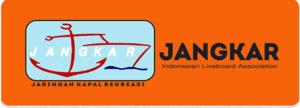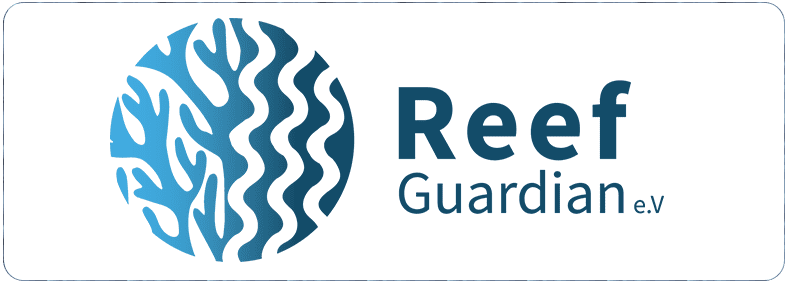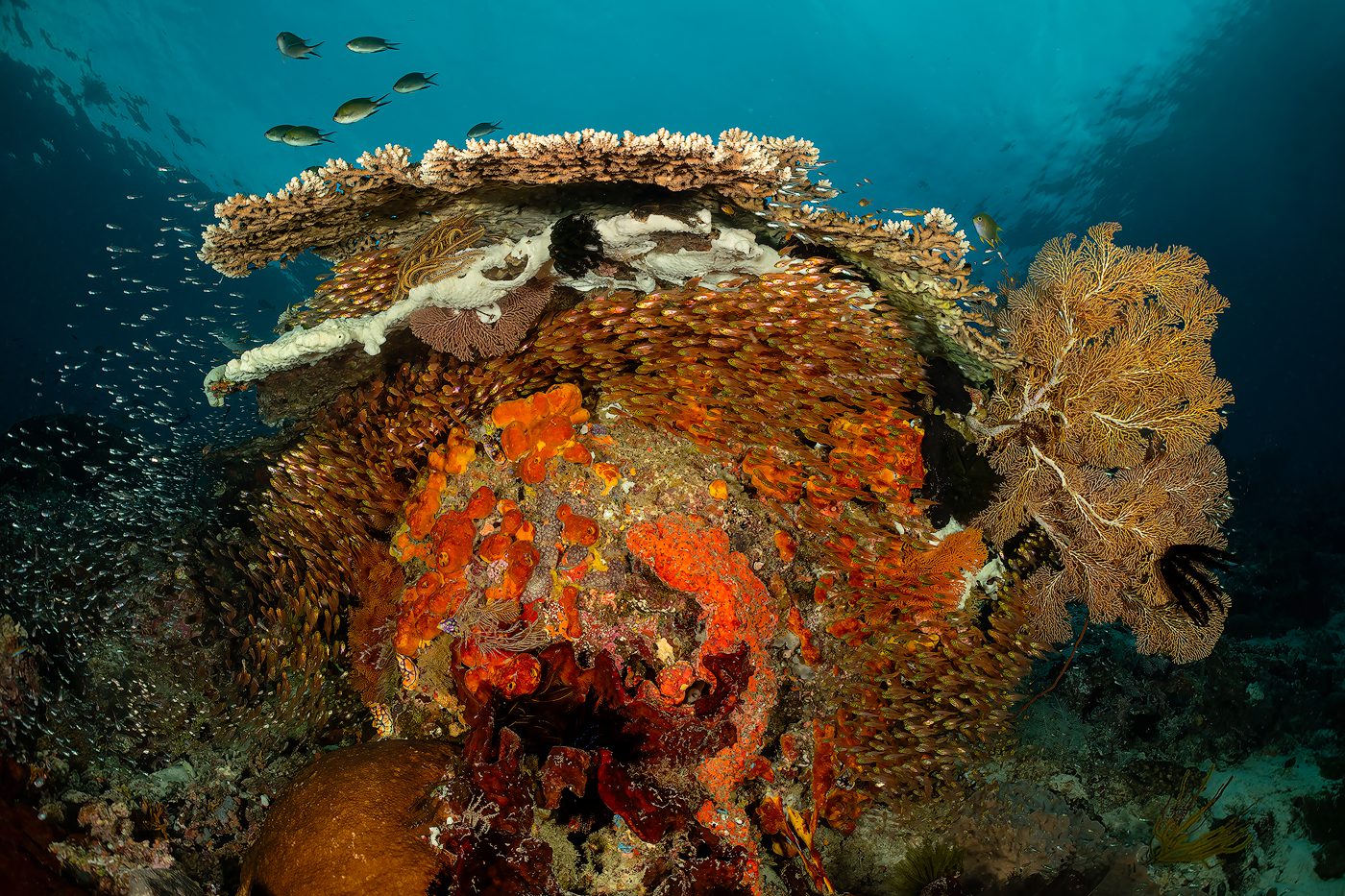Raja Ampat Pioneers – Max Ammer
Plus, on land the options range from beautiful resorts to village homestays. With everything in between!
The huge wave of tourism that has washed over Raja Ampat changed many things for the better. The main town of Sorong now has a new airport, several well-stocked supermarkets and numerous good hotels. Whereas, back in the late 90’s and early 00’s it was quite different. With the old airport feeling like something out of the 1950’s (because it was…). Very limited shopping options and basic accommodation…
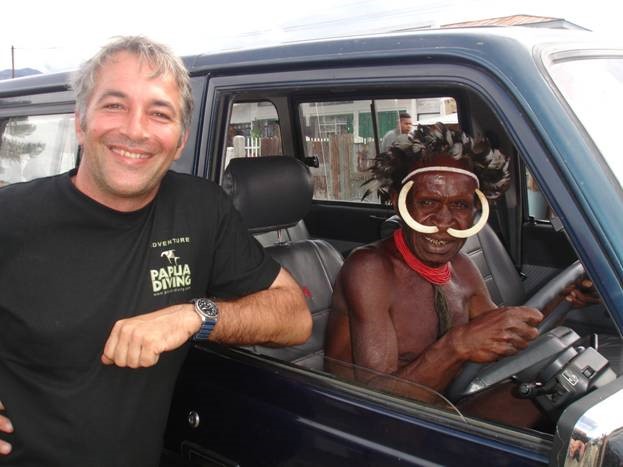
Choices for diving in Raja Ampat were also very limited. With the only land-based option a beach camp on the island of Kri, at the western end of the Dampier Strait. Some 2-3 hours journey by small boat from Sorong!
It was when I was first looking into that beach camp that I heard of Max Ammer. One of the handful of adventurous and entrepreneurial “bules” (foreigners) who have made Indonesia their home. And helped make Raja Ampat the global diving location it is today.
Face to Face with Max Ammer…
Max is always busy… But he carved out some time for me in late 2022 for a phone interview to talk about his life and adventures in Raja Ampat.
Then in April 2023 I returned to Raja Ampat and visited Max at his Sorido Bay resort on Cape Kri to complete the interview.
I spent many fascinating hours chatting with him about his life. His adventures and the inevitable ups and downs of a life literally lived to the full!
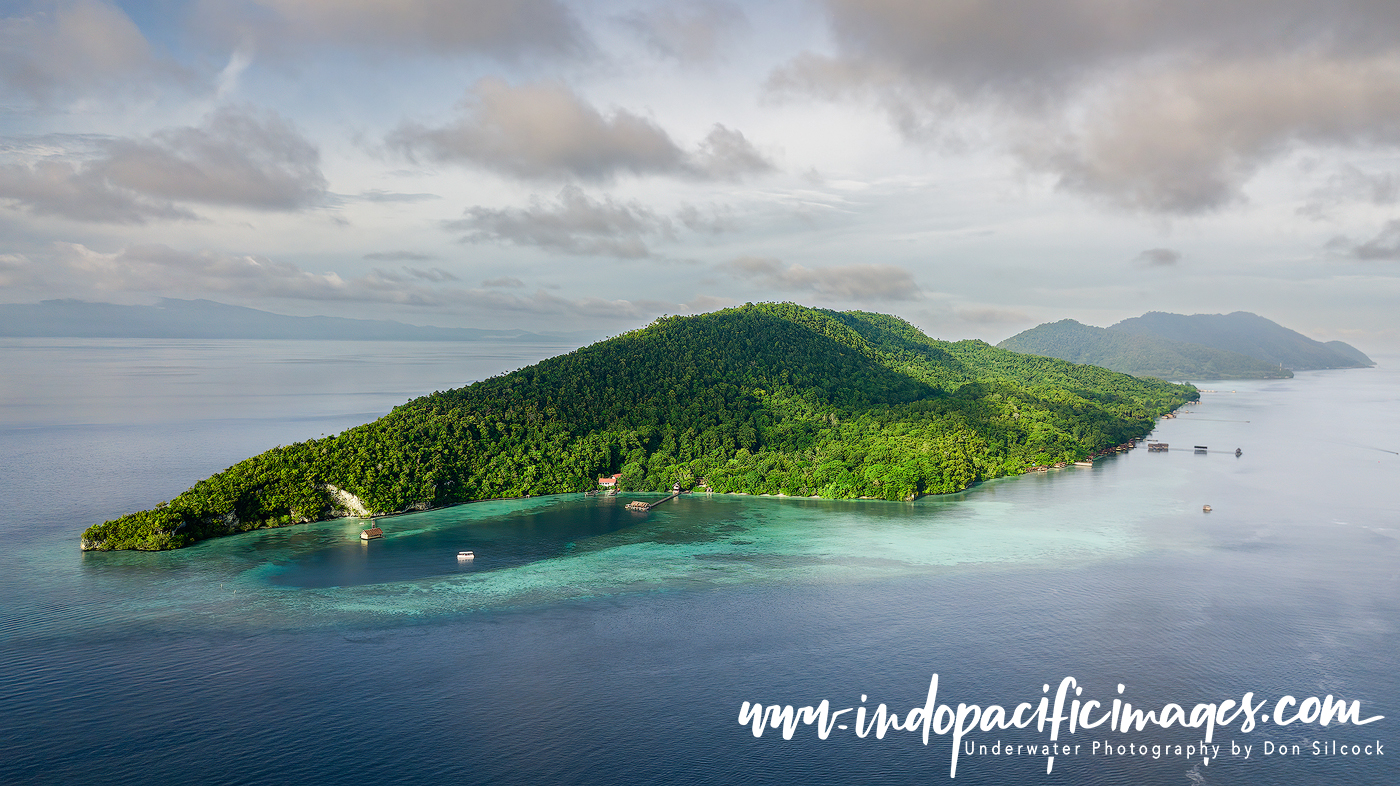
Max Ammer – Early Days
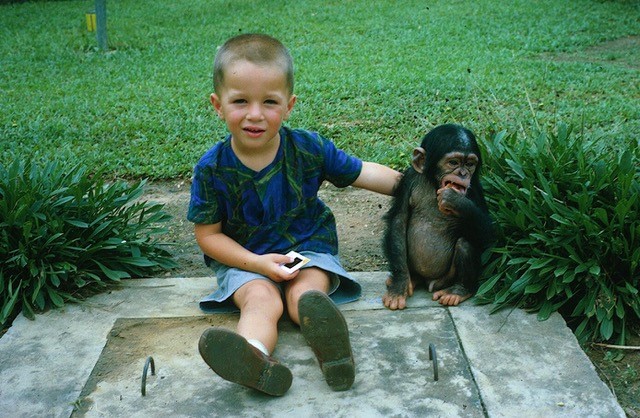
Psychologists tell us that our early years have a profound impact on the direction our lives take.
So, I was interested in Max Ammer’s early days. And his first 14 years were spent in Nigeria where his father worked in the country’s oil and gas industry.
A period of his life that he speaks of with deep warmth. Describing their expat villa as almost an open zoo for the animals that lived in the large tropical gardens.
Elements of Africa clearly seeped into his DNA during those formative years. Because when the family returned to their home in Holland, he felt that the country was too small and highly regulated. Almost the polar opposite of Nigeria!
It was back in Europe as a teenager that Max developed his enduring passion for WWII Harley Davidson motorcycles…
At just 17 he bought a WLA and set about returning it to its former glory. And ultimately beginning his first career restoring other vintage Harleys for their owners.
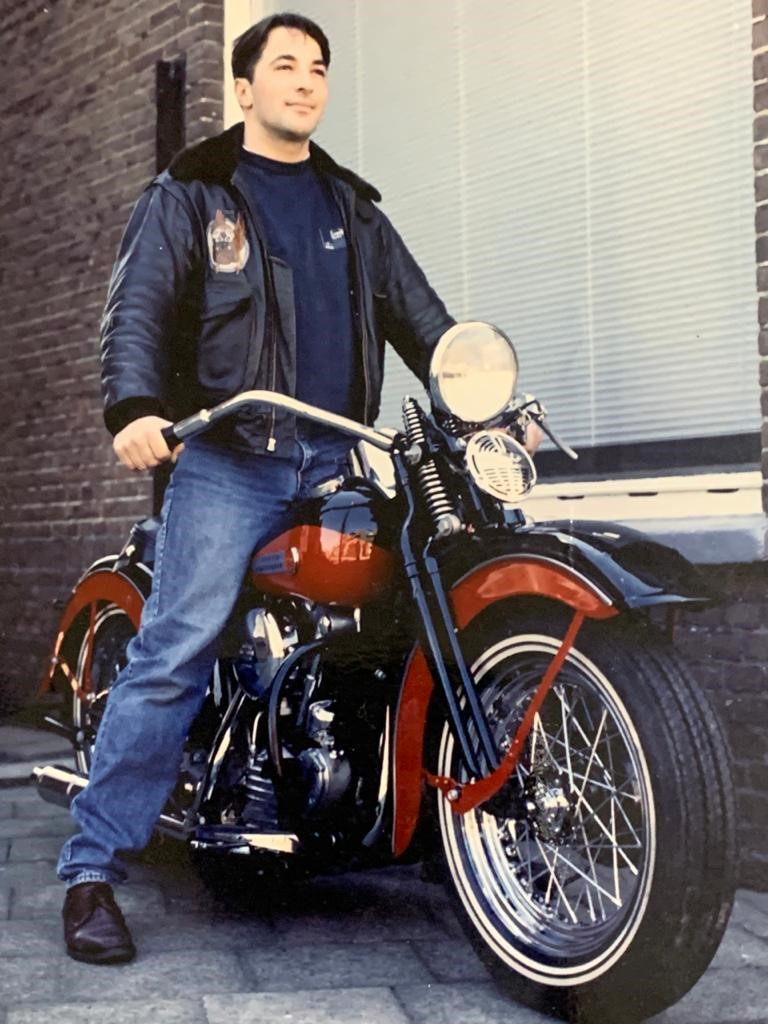
Discovering Indonesia
It was while looking for a suitable premises to base that small business he met the person who would introduce him to Indonesia.
The owner of the building was a WWII veteran. And at the end of the war had witnessed the dumping of US Army Willys jeeps on the remote island of Morotai in the north of Halmahera province.
The Army’s contract with Willys stipulated that none of their jeeps could be brought back to the United States at the end of WWII. So there was no choice but to dump some 100+ brand new jeeps on the edge of Morotai’s jungle and allow nature to smother them!
Max was intrigued and sensed a business opportunity. So he went to Morotai to try and find those jeeps.
That was in 1989, when Max was just 28. And decades before the internet opened up the world.
Just getting to Morotai by Indonesian ferry was an adventure in itself. But finding the jeeps, salvaging key components and then selling them to collectors around the world brings thoughts of Indiana Jones to mind!
He did not know it at the time. But Max had found a new home and now says there were many things about the Indonesia that reminded him of those early years in Nigeria.
Max Ammer – Discovering Raja Ampat…
While he was in Morotai, Max heard stories of American WWII aircraft wrecks in Raja Ampat and made his way there by ferry. It turned out that many of them were underwater. So he set about getting the necessary equipment to be able to find and then dive them.
To put that in perspective… At that point in time very few people were diving in Indonesia. And nobody was diving in Raja Ampat – so there were no tanks, compressors or anybody to help.
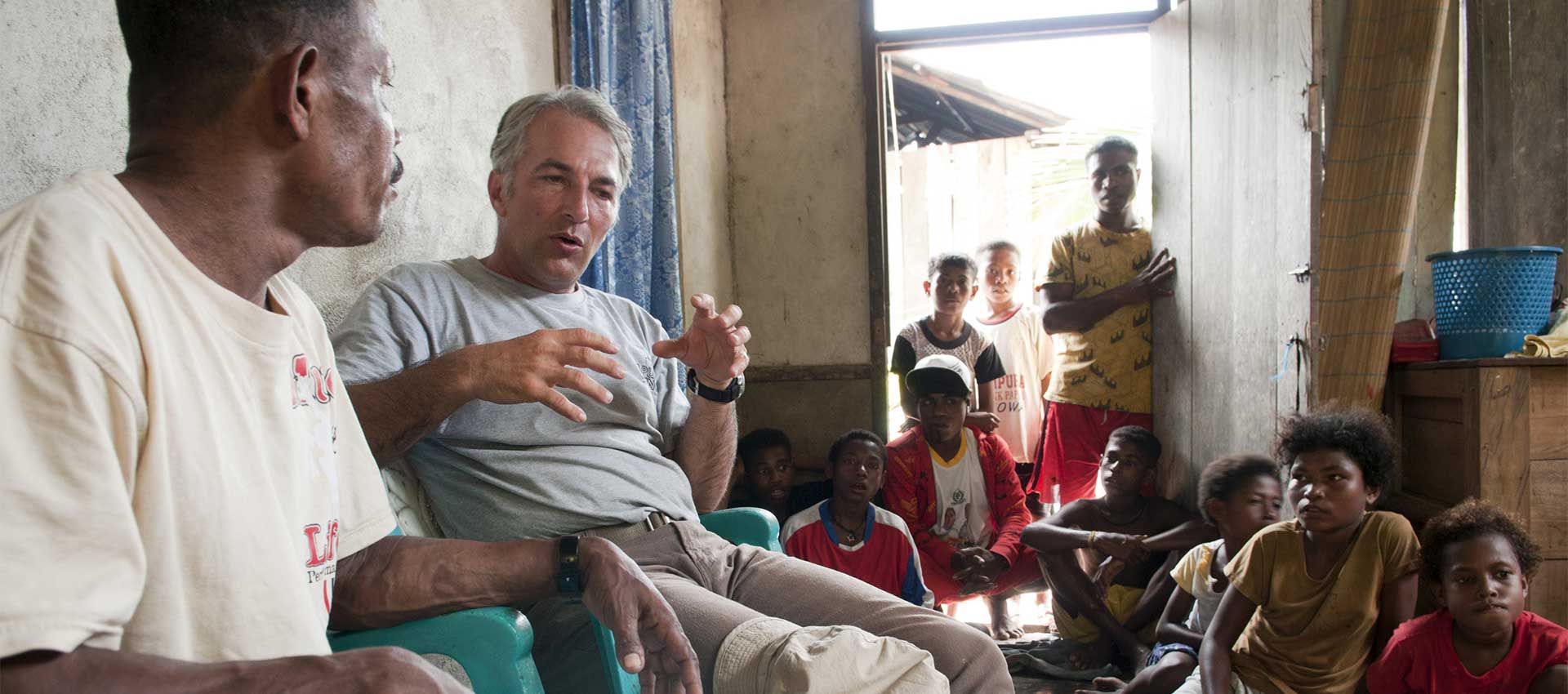
Finding the wrecks required a lot of solo diving in the strong currents of the Dampier Strait. And so Max was completely dependent on the support of the local Papuans who were helping him.
While they had no understanding whatsoever of what was under the water. They knew those currents like the backs of their hands which helped keep him safe!
Although he was searching for the aircraft wrecks, what Max Ammer discovered underwater in Raja Ampat is what we now know as probably the best tropical diving in the world. And it was during that discovery that he developed his strong affection for the local Papuans – the people of West Papua.
Papuans are predominantly of Melanesian (Oceania) extraction. And are known for their diverse cultures, languages and distinctive physical features. Max found them to be friendly and helpful, but almost like second-class citizens in their own land because of the Javanese-centric way the Republic of Indonesia works.
Eco Dive Camps
Max’s experience in Raja Ampat convinced him to do two key things. Start a business that would provide him with a source of income and therefore a way to help Papuans live better lives. Tourism seemed to offer the best and quickest way forward. Raja Ampat is an incredibly scenic location and he had seen what was under the water… But how to start when there was simply no infrastructure?
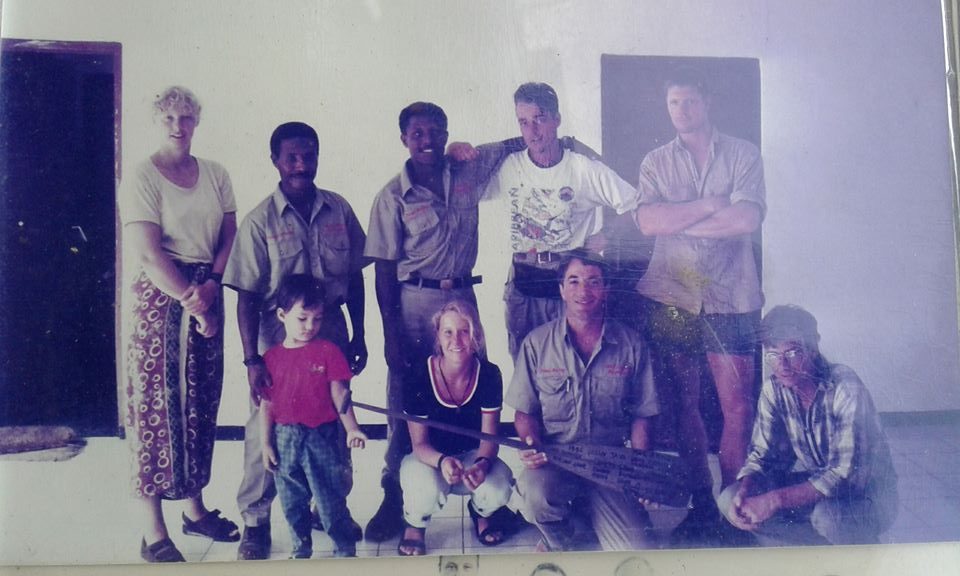
His solution was a beach “eco camp” on the island of Kri. Offering adventurous travellers the opportunity for exceptional diving in a beautiful but truly off the grid location.
He took the idea to Yembuba village and got permission to run the camps on the site that would later become his Eco Resort on the north coast.
The next step was to get the first customers. So he placed an advertisement for the adventure in a Dutch newspaper and sure enough, got some takers. Which meant that he had to take a loan of $100,000 from his father to make it all happen!
It turned out Max was right and soon he had bookings two years in advance from Europeans and Americans wanting a taste of Raja Ampat adventure.
From those very humble beginnings Max has grown his dive tourism business by taking a two-prong approach. With the Eco Resort catering to the lower end of the market. And his bespoke Sorido Bay Resort on Cape Kri itself.
Enabling the Papuans
Establishing a successful dive business in Raja Ampat has allowed Max to pursue his desire to improve the lives of the Papuan people. I was really keen to understand what that meant in reality.
The island of New Guinea is the world’s second largest. It was named by the first European explorers because the features of the indigenous people were very similar to those of the people of the West African region of Guinea. It is truly an incredible part of the world. With amazing topography, geography, cultures and biodiversity, with its eastern half now the independent country of Papua New Guinea. And the western half the Indonesian province of West Papua.
The vast majority of Papuans live traditional subsistence and hunter-gatherer lifestyles. Where the land and/or the sea provides enough to eat and trade. But away from the larger towns, access to good schools and teachers is practically and logistically difficult at best. Upward mobility and hopes of a better life were almost impossible as the whole province was largely ignored by the Indonesian government – unless they got restive…
What Max Ammer has tried to do, initially through dive tourism and then with his other ventures, is create opportunities for Papuans to work, earn money and progress up Maslow’s hierarchy. Basically, that boils down to acquiring skills and started with the resorts where 90% of the staff are Papuan. But as time progressed expanded into making all the furniture for the resorts and then building the boats used for both diving and transport.
Other Ventures…
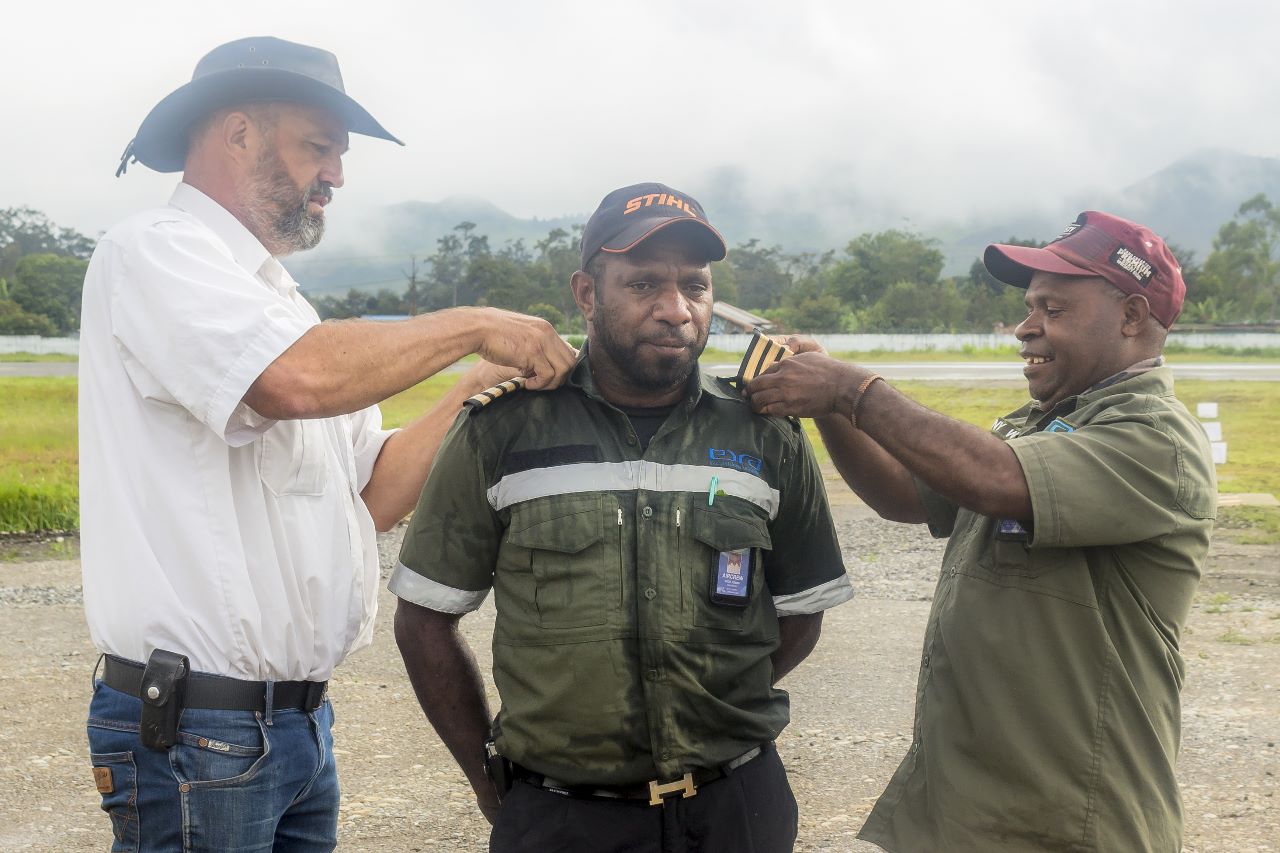
One of those other ventures is Frontier Aviation. A volunteer based, non-profit, dedicated to training Papuans to build, maintain and fly multiple types of aircraft.
Max was particularly proud that the first fully-fledged local pilot, Noor Hilapok, had graduated recently!
And, to try and improve access to good education in Raja Ampat, through his Raja Ampat Research and Conservation Center (RARCC) foundation, Max has been supporting a school at the remote village of Yarweser on the large island of Batanta since 2018.
“Support” means getting teachers properly trained to teach. Providing teaching materials and books, new school buildings and accommodation for the teacher!
Conservation
Max is what I would describe as a pragmatic conservationist. Having seen Raja Ampat’s reefs and stunning biodiversity long before anybody else he knows, shall we say, what good really looks like.
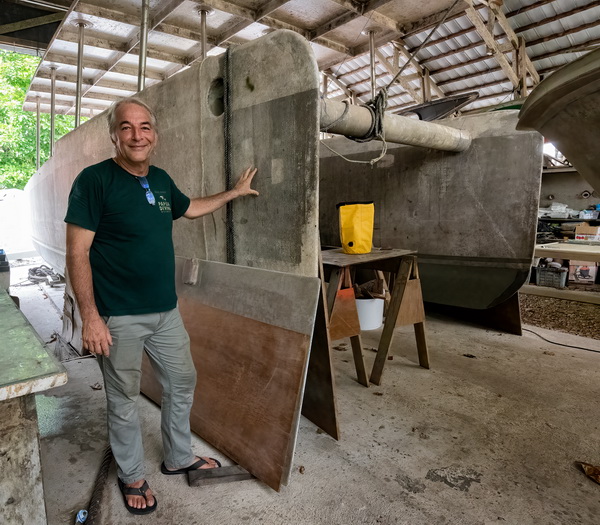
Because he pioneered land-based diving tourism using small boats with outboard engines. He knows the damage leaked two-stroke oil can do now that the numbers of those boats in daily use has mushroomed. He has also seen the number of liveaboards in Raja Ampat skyrocket and worries about unmonitored raw sewage discharges will do to those reefs.
His approach is to actively support initiatives to quantify such issues. And then put in place measures to reduce the impact. Max gave me a guided tour of the Sorido Bay resort and showed me the rainwater collection systems that provide all the freshwater.
Then there are the waste-water gardens. The recycling system that sends all rubbish back to Sorong for proper disposal. And the boatbuilding that will use much more environmentally friendly inboard-powered catamarans to replace the current outboard powered boats.
Max also works closely with Mark Erdmann, the Asia-Pacific VP of Conservation International And supports CI’s programs and initiatives in West Papua, which have been very effective in raising overall awareness of just how special the area is. CI have been particularly effective in helping the Indonesian government to improve conservation and management of sharks and rays.
Expeditions
One final and very impressive thing I learned about Max Ammer is his exploration of remote and isolated areas of West Papua. Including leading expeditions for acclaimed author and ULCA Professor of Geography Jared Diamond.
A lot of that exploration was done using the two-seat, Rotax engine powered Super Drifter ultralight floatplane. With the longest flight accomplished being from Misool to Arguni Bay near Fakfak. A journey that took 7.5 hours flight time!
Max Ammer – A Life Lived to the Full (or should that be to the Max?)
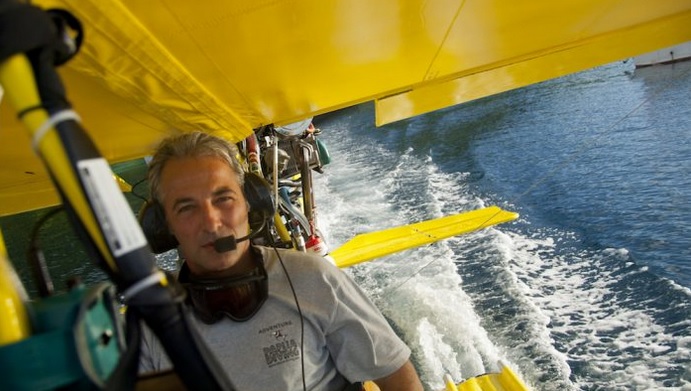
I have been interested in learning more about Max Ammer since I first heard about those beach camps on Kri and talking to him on the phone really was intriguing. But sitting down with him and chatting numerous times at Sorido Bay was next level.
The guy has done so much at times it really becomes difficult to absorb it all. Sometimes I would have to tell him “Max, I am getting dizzy”… He is into so many things and is very passionate about them all. But remains very humble and matter of fact – there is no braggadocio, none!
What he has done and continues to do is simply incredible. It’s almost as if Max Ammer had never existed, Raja Ampat would have had to invent him.
© 2023 Indo Pacific Images All rights reserved
Visit Don’s website, Indo Pacific Images for lots more great stuff! Click here to read this article on Don’s website.






























